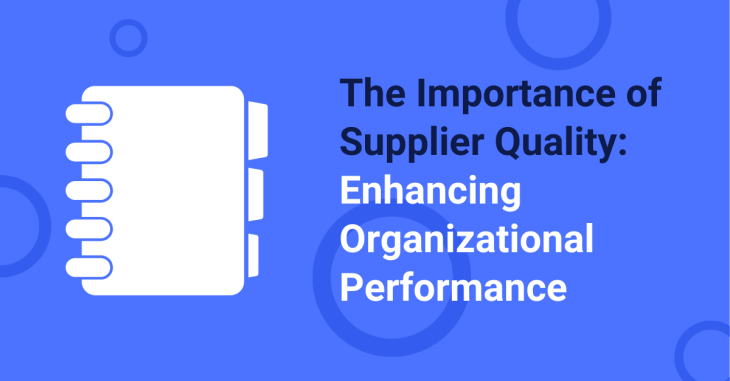The Importance of Supplier Quality: Enhancing Organizational Performance

Although you may effectively guarantee the efficiency of your internal operations, managing your external operations involving suppliers, external providers, and outsourced processes can pose greater potential risks at times.
What is Supplier Quality?
Supplier quality refers to a supplier’s capacity to provide goods or services that meet the requirements of customers. Supplier quality management entails overseeing supplier quality through a proactive and cooperative methodology.
Supplier performance and quality management extend beyond simply obtaining a favorable purchase price or acquiring bulk materials at the best rate. It encompasses expenses associated with transactions, communication, resolving issues, and changing suppliers; and the dependability of supplier deliveries and adherence to the supplier’s internal policies (such as inventory management), all of which influence supply chain effectiveness.
Why is this so important?
Neglecting supplier quality management poses significant risks, including inconsistent product or service quality, increased costs due to inefficiencies, potential damage to reputation, supply chain disruptions, legal and compliance issues, loss of competitive advantage, strained relationships with partners, and decreased overall efficiency. Effective oversight of supplier quality is crucial for ensuring that goods and services meet standards and customer expectations, maintaining operational continuity, and safeguarding the organization’s reputation and competitive position in the market.

How Rhythm can help with this
In Rhythm, we think that supplier quality management is essential. Our platform offers a comprehensive solution to streamline and optimize the entire process. Through our technology, suppliers and customers can efficiently manage all aspects of supplier quality in one centralized platform.
By leveraging Rhythm’s technology, suppliers and customers can effectively enhance organizational performance, ensure product quality, minimize costs, and maintain competitive advantage in today’s dynamic market landscape.





